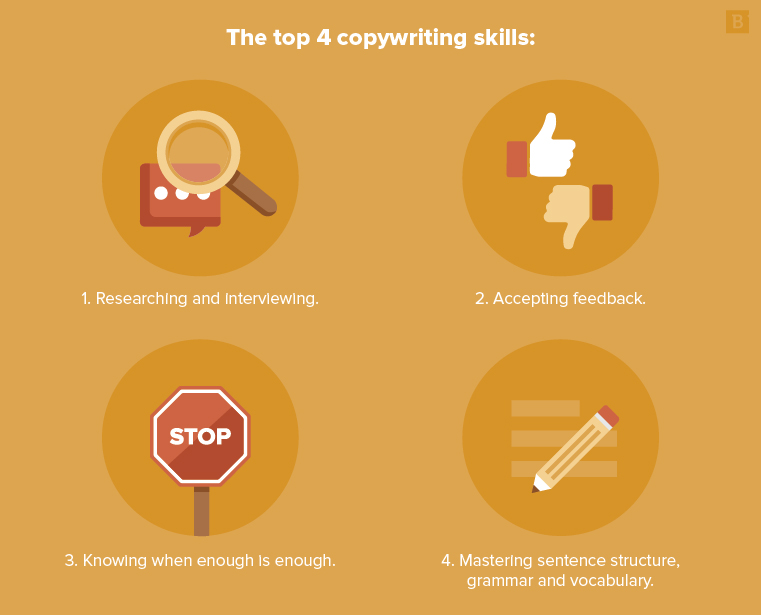Unleash the power of words with these essential copywriting skills that will take your content creation to the next level.

Image courtesy of via DALL-E 3
Table of Contents
- Introduction to Copywriting
- Understanding the Audience
- Crafting a Strong Headline
- Writing Clear and Concise Copy
- Using Persuasive Language
- Editing and Revising Your Work
- Developing Your Unique Writing Style
- Using Feedback to Improve
- Conclusion: Putting It All Together
- Frequently Asked Questions (FAQs)
Introduction to Copywriting
Copywriting is an essential skill that involves writing words to persuade or inform people about products or ideas. It’s a creative and powerful way to communicate with others and can be incredibly beneficial in various fields.
What Is Copywriting?
Copywriting is simply the art of writing words that sell. Whether it’s crafting a compelling advertisement, creating engaging content for a website, or writing persuasive emails, copywriting is all about using words to influence and persuade others.
Why Is Copywriting Important?
Good copywriting can make a significant difference in the success of businesses or individuals. It has the power to shape people’s opinions, build trust, and ultimately drive action. Being a skilled copywriter opens up exciting opportunities to make a real impact with your words.
Understanding the Audience
In the world of copywriting, understanding your audience is like having a secret superpower. It’s all about knowing who you’re writing for and tailoring your words to connect with them. Let’s dive into why this skill is crucial for any budding writer!
Who Are You Writing For?
Before you start typing away, it’s essential to figure out who your readers are. Imagine your audience as a group of friends you want to chat with. What are their interests? What makes them tick? This group is called your “target audience.” They are the people you want to reach with your message.
Getting Inside Their Heads
Once you know who your readers are, it’s time to get inside their heads. Empathy is your guide here. It means putting yourself in their shoes and understanding what they think and feel. When you can see the world through their eyes, you’ll know just how to speak to them in a way that truly connects.
Crafting a Strong Headline
A headline is the first thing people see when they look at an article or an advertisement. It’s like a sneak peek into what the writing is about. To make a great headline, it needs to be catchy and interesting, so people want to read more. An attention-grabbing headline can make a big difference in whether someone decides to keep reading or not.

Image courtesy of m.gingerarcher.com via Google Images
Examples of Great Headlines
Imagine you see a headline that says, “New Superhero Saves the Day!” That sounds exciting, right? It makes you want to learn more about this superhero and how they saved the day. Or how about a headline that says, “10 Fun Activities for a Rainy Day”? If it’s a gloomy day outside, you may be curious to see what fun activities you can do indoors.
Writing Clear and Concise Copy
When it comes to writing, clarity and conciseness are key. Making sure your message is easy to understand and getting straight to the point can greatly impact how effective your copy is. Here are some tips to help you achieve clear and concise writing:
Keep It Simple
Using simple words and short sentences can make a big difference in how well your writing is received. When your words are easy to understand, your readers will stay engaged and grasp your message quickly.
Stick to the Point
Avoiding unnecessary information and staying focused on the main message is crucial in writing clear and concise copy. Be direct and to the point so that your readers know exactly what you’re trying to convey without any confusion.
Using Persuasive Language
When you want to convince someone to do something, using persuasive words can be really helpful. Words like ‘you’, ‘free’, and ‘guaranteed’ are powerful because they speak directly to the reader and make them feel like you’re talking to them personally. These words can grab someone’s attention and make them more likely to take action. So, when you’re writing, think about using these persuasive words to make your message stronger.

Image courtesy of copymate.app via Google Images
Creating a Call to Action
A call to action is like a friendly nudge that tells the reader what you want them to do next. It could be something like ‘Buy Now’, ‘Sign Up Today’, or ‘Learn More’. To make your call to action effective, it should be clear, specific, and easy to follow. By using persuasive language in your call to action, you can motivate people to take the next step. Remember, a good call to action can turn a reader into a customer!
Editing and Revising Your Work
When you finish writing your first draft, don’t worry if it’s not perfect. It’s normal to have mistakes, and that’s where editing and revising come in. Even professional writers don’t get it right on the first try!
Tips for Editing
Editing is like giving your writing a good polish. You want to make sure everything is clear and error-free. Here are some simple tips to help you edit like a pro:
1. Check for spelling mistakes. Make sure all your words are spelled correctly. If you’re not sure, use a dictionary or ask for help.
2. Look for grammar errors. Make sure your sentences make sense and follow the rules of grammar. Check for things like subject-verb agreement and proper punctuation.
3. Ensure clarity. Read your writing out loud to see if it flows smoothly. If something sounds confusing or awkward, try rephrasing it.
4. Ask for feedback. Sometimes, another set of eyes can catch mistakes you might have missed. It’s always good to have someone else read your work and give you suggestions for improvement.
Remember, editing is a crucial step in the writing process. It helps you refine your work and make it the best it can be!
Developing Your Unique Writing Style
Writing style refers to the unique way each person writes. It includes the tone, voice, and overall feel of their writing. Think of it as your writing fingerprint – something that sets you apart from others.

Image courtesy of m.gingerarcher.com via Google Images
Finding Your Voice
Discovering your own voice in writing can be exciting and rewarding. To find your voice, try writing often and experimenting with different styles. See what feels most natural and authentic to you. Your voice will evolve over time as you keep practicing and honing your craft.
Using Feedback to Improve
Feedback is like having a coach giving you tips on how to play better in a game. It’s essential for getting better at anything, including writing. When someone reads your work and tells you what they liked and what could be better, it’s a chance for you to learn and grow as a writer.
Why Feedback Matters
Feedback is super helpful because it shows you what you did well and where you can improve. Maybe someone tells you that your headline was catchy, but your call to action could be clearer. This kind of feedback helps you see what you’re good at and what you can work on.
Taking Feedback Positively
Receiving feedback isn’t always easy, especially if you put a lot of effort into your writing. But remember, feedback is not meant to make you feel bad; it’s meant to help you get better. So, when someone gives you feedback, try to listen and learn from it. Use it as a tool to grow and improve your writing skills.
Conclusion: Putting It All Together
Now that we’ve covered essential copywriting skills, let’s recap what we’ve learned and how you can apply these skills to become a successful writer.

Image courtesy of rockcontent.com via Google Images
Review of Key Skills
Remember, copywriting is all about writing words that sell products or ideas. It’s crucial to know your audience and tailor your message to connect with them. Crafting a strong headline is key to grabbing attention, while writing clear and concise copy ensures your message is easily understood. You can persuade your readers by using persuasive language and creating a compelling call to action. Editing and revising your work is essential to polish your writing, and developing your unique writing style will help you stand out. Lastly, using feedback to improve is a valuable tool in your writing journey.
Practice Makes Perfect
As with anything, practice makes perfect. Keep honing your copywriting skills by writing regularly and applying what you’ve learned. Remember, improvement takes time and effort, so don’t get discouraged if you don’t see immediate results. The more you write and practice, the better you’ll become at crafting compelling copy that resonates with your audience.
Want to turn these SEO insights into real results? Seorocket is an all-in-one AI SEO solution that uses the power of AI to analyze your competition and craft high-ranking content.
Seorocket offers a suite of powerful tools, including a Keyword Researcher to find the most profitable keywords, an AI Writer to generate unique and Google-friendly content, and an Automatic Publisher to schedule and publish your content directly to your website. Plus, you’ll get real-time performance tracking so you can see exactly what’s working and make adjustments as needed.
Stop just reading about SEO – take action with Seorocket and skyrocket your search rankings today. Sign up for a free trial and see the difference Seorocket can make for your website!
Frequently Asked Questions (FAQs)
What If I Make a Lot of Mistakes?
It’s totally okay to make mistakes when you’re writing. In fact, everyone makes mistakes, especially when they’re just starting out. The good news is that you can always go back and fix them. That’s where editing comes in! Editing is like giving your writing a little makeover to make it better. So don’t worry about making mistakes, just keep writing and improving!
How Do I Come Up with Good Ideas?
Coming up with good ideas can sometimes feel tricky, but it’s all about letting your creativity flow! One great way to get ideas is through brainstorming. Write down anything that pops into your head, even if it seems silly at first. You can also find inspiration in everyday things like nature, books, movies, or even conversations with friends. The more you explore and let your imagination run wild, the more ideas you’ll discover!
Is Copywriting Only for Adults?
No way! Copywriting is for everyone, regardless of age. Whether you’re 11 or 111, you can learn and practice copywriting skills. It’s all about expressing your thoughts and ideas in a persuasive and engaging way. So don’t let your age hold you back. Dive into the world of copywriting and unleash your creativity!







